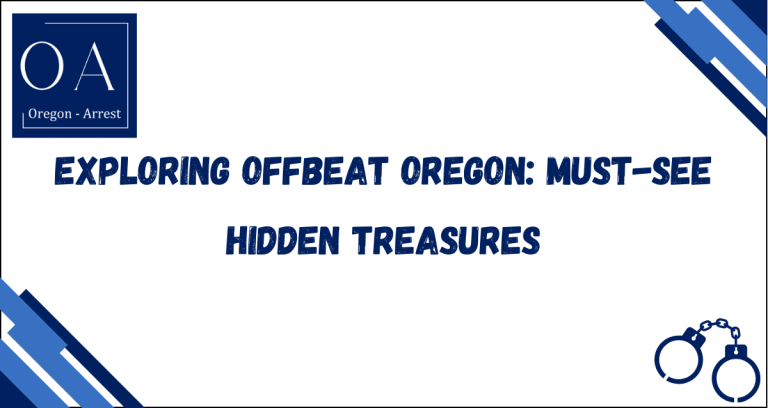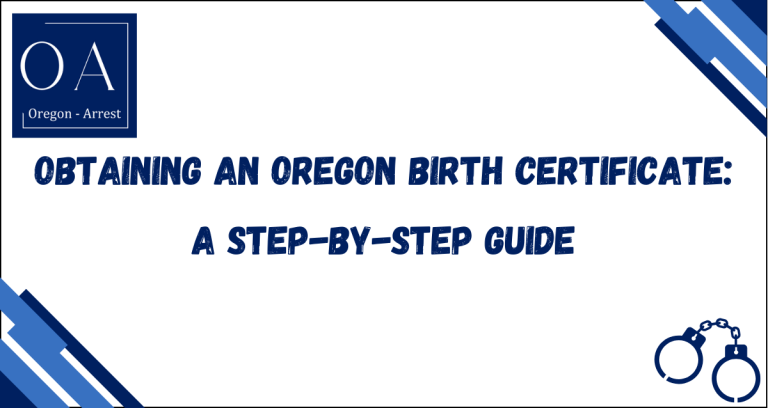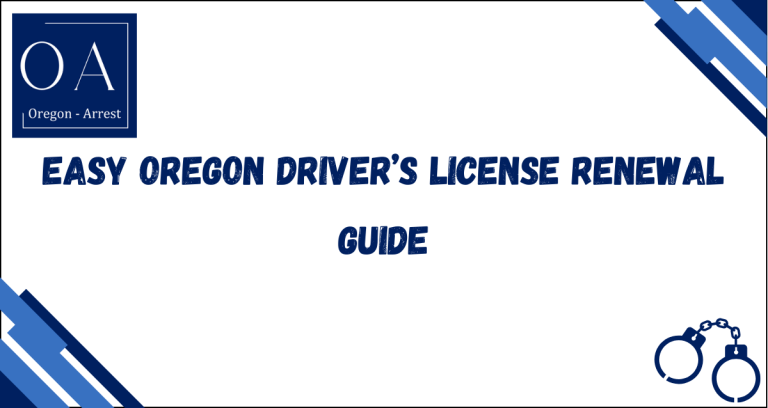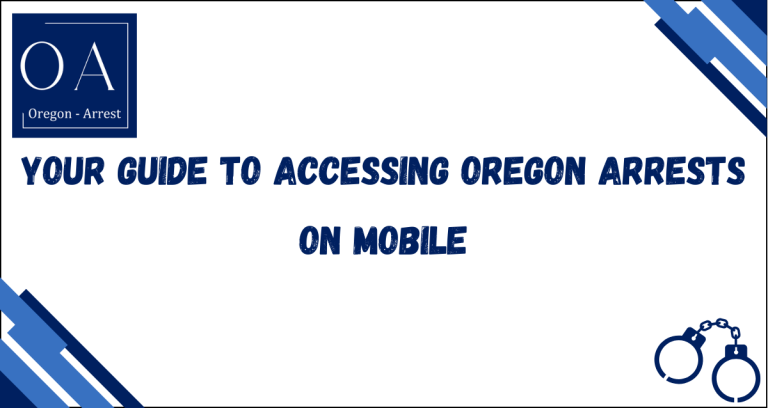Exploring Oregon Arrest Records Online
In today’s digital age, the availability of information has revolutionized various aspects of our lives, including accessing public records. Exploring arrest records can provide insight into an individual’s criminal history, offering essential information for legal, personal, or employment purposes. This article delves into the world of Oregon arrest records, detailing how to access them online, the significance of such records, and the safeguards in place to protect privacy.
Understanding Oregon Arrest Records
Arrest records serve as official documentation of an individual’s encounters with the law. They encompass details of arrests, charges, bookings, court proceedings, and outcomes. The primary purpose of maintaining these records is to ensure transparency within the criminal justice system. While access to such records is essential, it must be approached with consideration for legal and ethical boundaries.
In Oregon, arrest records are public information, making them accessible to individuals, employers, legal professionals, and researchers. These records provide a comprehensive view of an individual’s interaction with the criminal justice system, from the initial arrest to the final disposition of the case. They play a crucial role in legal proceedings, background checks, and personal safety assessments.
Accessing Oregon Arrest Records Online
Obtaining arrest records in Oregon has become considerably more convenient due to online accessibility. Government agencies provide dedicated online portals that grant public access to these records. Additionally, several third-party platforms aggregate these records, offering user-friendly interfaces for searches. It’s important to note that while some information might be accessible for free, more detailed records might require a nominal fee or specific qualifications.
When accessing Oregon arrest records online, it’s vital to have accurate details about the individual in question, such as their full name and, if possible, their date of birth. This information ensures that the search results are as precise as possible, minimizing the risk of confusion with individuals who have similar names. Moreover, understanding the structure of the records and the codes used can aid in efficiently interpreting the information presented.
Interpreting Oregon Arrest Records
Navigating through arrest records can be complex, as they contain a wealth of information. From charges and case numbers to court dates and dispositions, each detail plays a significant role in painting a complete picture. Understanding record codes and terminology is crucial for accurate comprehension. Reading between the lines and recognizing the context of an arrest record is equally important in order to avoid misinterpretations.
For instance, a charge listed on an arrest record might not necessarily indicate guilt. It’s essential to recognize that an arrest is the beginning of a legal process, and outcomes can vary. Dispositions such as “dismissed,” “acquitted,” or “convicted” provide a more accurate understanding of the case’s resolution. Consulting legal professionals or resources that can help decipher the nuances of these records is advisable.
Significance and Applications
Oregon arrest records hold immense importance across various scenarios. In legal proceedings, these records serve as evidence and historical documentation. For employers, they aid in making informed hiring decisions, particularly for roles that involve trust and responsibility. On a personal level, being aware of your own arrest records ensures accuracy and allows for corrections if necessary.
Individuals can also benefit from knowing what information is available in their public arrest records. This knowledge can help individuals address any inaccuracies or discrepancies that might arise during background checks, thus safeguarding their reputation and ensuring that their personal information is correctly represented.
Protecting Privacy in Arrest Records
While arrest records are public, steps have been taken to balance transparency with privacy concerns. Expungement and record-sealing options exist for individuals who meet certain criteria. This process effectively limits public access to specific arrest records, offering individuals a chance to rebuild their lives without the constant shadow of past mistakes.
Expungement involves the legal process of removing specific arrests or convictions from an individual’s record, effectively rendering them invisible to most background checks. Sealing records restricts public access to certain records, making them accessible only with a court order. These options recognize an individual’s efforts toward rehabilitation and provide them with the opportunity for a fresh start.
Furthermore, data security measures are in place to safeguard these records from unauthorized access and misuse. Online portals and databases employ encryption and authentication protocols to protect sensitive information from falling into the wrong hands. This ensures that while public access is upheld, the records remain secure and are used responsibly.
FAQ’s
Can anyone access Oregon arrest records online?
Yes, in Oregon, most arrest records are considered public information, allowing anyone to access them through government portals or authorized third-party databases. This accessibility promotes transparency within the criminal justice system.
How can I get an arrest record expunged in Oregon?
Expungement in Oregon allows eligible individuals to have their arrest records sealed from public access. The process involves filing a petition and meeting specific criteria, such as completing probation or parole. Successfully expunging a record can provide individuals with a fresh start and improved opportunities.
Do arrest records indicate guilt?
No, arrest records alone do not prove guilt. They document arrests and charges, but the final disposition of a case, whether through acquittal, dismissal, or conviction, provides a more accurate picture of guilt or innocence. Understanding the context and outcome of an arrest is essential for a comprehensive understanding of the situation.







